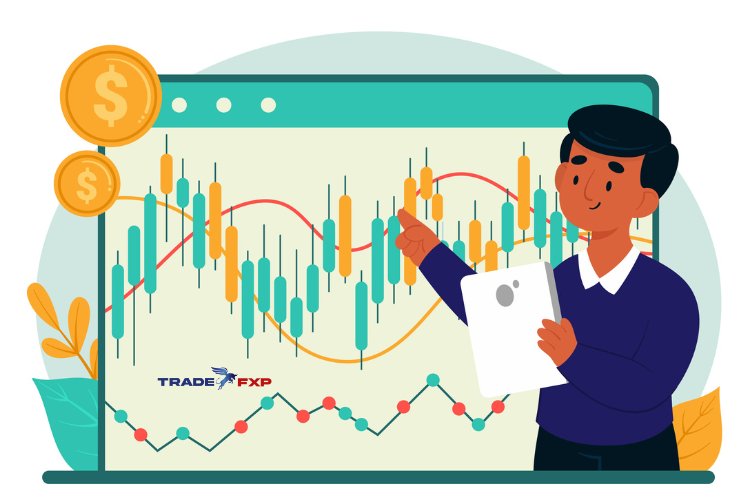What do you mean by trading indices?
Understand the concept of trading indices with our comprehensive guide. Get insights into indices' functionality, benefits, and strategies at TradeFXP blogs.

What do you mean by trading indices?
Trading indices refer to buying and selling index futures or options, which are financial instruments that allow you to speculate on the future value of an index. Index futures are contracts that obligate the buyer to purchase a certain amount of the underlying index at a predetermined price on a future date, while index options give the holder the right, but not the obligation, to buy or sell the underlying index at a specified price on or before a certain date.
Traders use indices as a way to speculate on the overall direction of the stock market or a particular sector. For example, a trader might buy a futures contract on the S&P 500 index if they believe the stock market will rise in the future, or sell a contract if they believe it will fall. Similarly, a trader might buy a call option on the NASDAQ index if they expect the technology sector to perform well, or sell a put option if they expect it to underperform.
Trading indices can be a way to potentially earn returns based on the performance of the underlying index, but it also carries a high level of risk and is not suitable for everyone. Trading in index futures and options involves leverage, which means you can potentially lose more money than you have invested.
It is important to carefully consider your risk tolerance and financial situation before deciding whether to trade indices. It is also important to have a thorough understanding of the market and the underlying index, as well as the mechanics of trading indices, before making any trades.
The differences between trading indices and stocks
There are several key differences between trading indices and trading individual stocks:
- Diversification: Indices consist of a basket of stocks, while individual stocks represent a single company. This means that when you trade an index, you are essentially investing in a diverse group of stocks while trading an individual stock exposes you to the performance of a single company.
- Risk: Because indices consist of multiple stocks, they can offer a degree of diversification and potentially reduce risk compared to trading individual stocks. However, indices are still subject to market risk and can fluctuate in value. Trading individual stocks carry additional risks, such as the risk that the specific company will underperform or face unforeseen challenges.
- Fees: Trading indices typically involves lower fees compared to trading individual stocks, as there are fewer transactions involved. This is because you are buying or selling a single index rather than multiple individual stocks.
- Trading strategy: When trading indices, you are speculating on the overall direction of the market or a particular sector. When trading individual stocks, you may focus more on the specific performance and prospects of the individual company.
- Leverage: Trading indices often involve the use of leverage, which means you can potentially control a larger position than the amount of capital you have invested. Trading individual stocks typically do not involve leverage.
Both trading indices and trading individual stocks can be effective ways to potentially earn returns, but they involve different risks and strategies. It is important to carefully consider your investment goals and risk tolerance before deciding which approach is right for you.
Is investing and trading in indices worth it?
Investing in indices can be a good way to diversify your portfolio and potentially earn returns that track the overall performance of the stock market. Indices are baskets of stocks that represent a particular market or sector, and they can provide a way to invest in a broad range of companies without having to individually purchase and manage multiple stocks.
There are pros and cons to consider when deciding whether investing in indices is worth it for you. Some potential benefits of investing in indices include:
- Diversification: Indices typically consist of a large number of stocks, which can help spread risk across different sectors and industries. This can make it less likely that the performance of any one stock will have a significant impact on your overall portfolio.
- Professional management: Many index funds are managed by professional investment firms, which can take care of the research and analysis required to select the stocks in the index. This can save you time and effort compared to individually managing your portfolio.
- Low costs: Index funds often have lower fees compared to actively managed funds, as they do not require the same level of research and analysis. This can help increase your potential returns.
However, there are also some potential drawbacks to consider when deciding whether to invest in indices:
- Passive approach: Index funds are typically passive investments, meaning they do not try to outperform the market. This means you may not earn higher returns than the market as a whole.
- Limited upside potential: Because index funds do not try to outperform the market, they may not provide the same potential for high returns as actively managed funds or individual stocks.
Ultimately, whether investing in indices is worth it for you will depend on your investment goals, risk tolerance, and financial situation. It is always a good idea to carefully consider your options and consult with a financial advisor or professional before making any investment decisions.
Where can I trade Indices?
There are several places where you can trade indices, including:
- Stock exchanges: Many indices, such as the S&P 500 and the NASDAQ Composite, are traded on stock exchanges like the New York Stock Exchange (NYSE) and the NASDAQ. You can buy and sell index futures and options through a brokerage account at a participating exchange.
- Online brokers: Many online brokers offer the ability to trade indices through futures or options contracts. You can open an account with an online broker and place trades through their platform.
- Trading platforms: There are also a variety of specialized trading platforms that offer the ability to trade indices. Some platforms may focus on a particular type of indexes, such as commodities or currencies, while others may offer a wider range of options.
It is important to carefully research and compares different options to find the platform that best meets your needs. Factors to consider may include the types of indices available, fees, and the overall platform features and functionality. It is also important to ensure that the platform you choose is reputable and regulated by a trustworthy authority.
A conclusion about trading indices
In conclusion, trading indices can be a way to potentially earn returns based on the overall performance of the stock market or a particular sector. Indices offer diversification and may involve lower fees compared to trading individual stocks, but they also carry inherent market risks and may not provide the same potential for high returns as actively managed funds or individual stocks. Trading indices involves the use of leverage, which can increase potential gains but also carries the risk of significant losses.
It is important to carefully consider your investment goals, risk tolerance, and financial situation before deciding whether trading indices is right for you. It is also crucial to have a thorough understanding of the market and the mechanics of trading indices before making any trades. As with any investment, it is important to do your due diligence and research your options before making a decision.
To join our Hunter AutoBot Trading Program CLICK HERE
Why do you need to be with TradeFxP? CLICK HERE
All About TradeFxP's Hunter Ai EA Autobot CLICK HERE
To read more interesting articles CLICK HERE
To contact me
abe@tradefxp.com Phone: +44 7441 44 3348
Skype: abetrex www.tradefxp.com
Download this article as PDF - Attached



 admin
admin 










